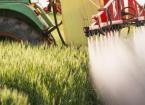Grassland Species
This module will describe how to assess a sward, identify common grass species and give information on ryegrass, clovers and multi-species leys. Ploughing and re-seeding under the Environmental Impact Assessment Regulations will also be discussed.










